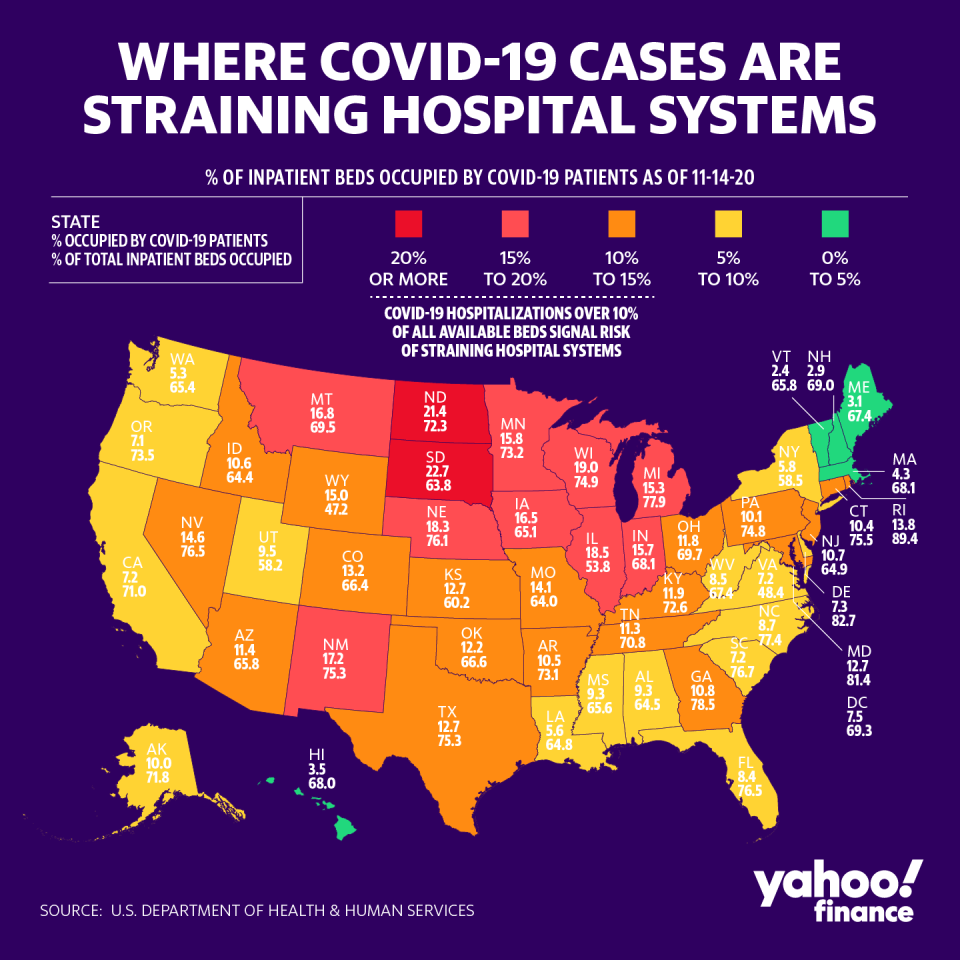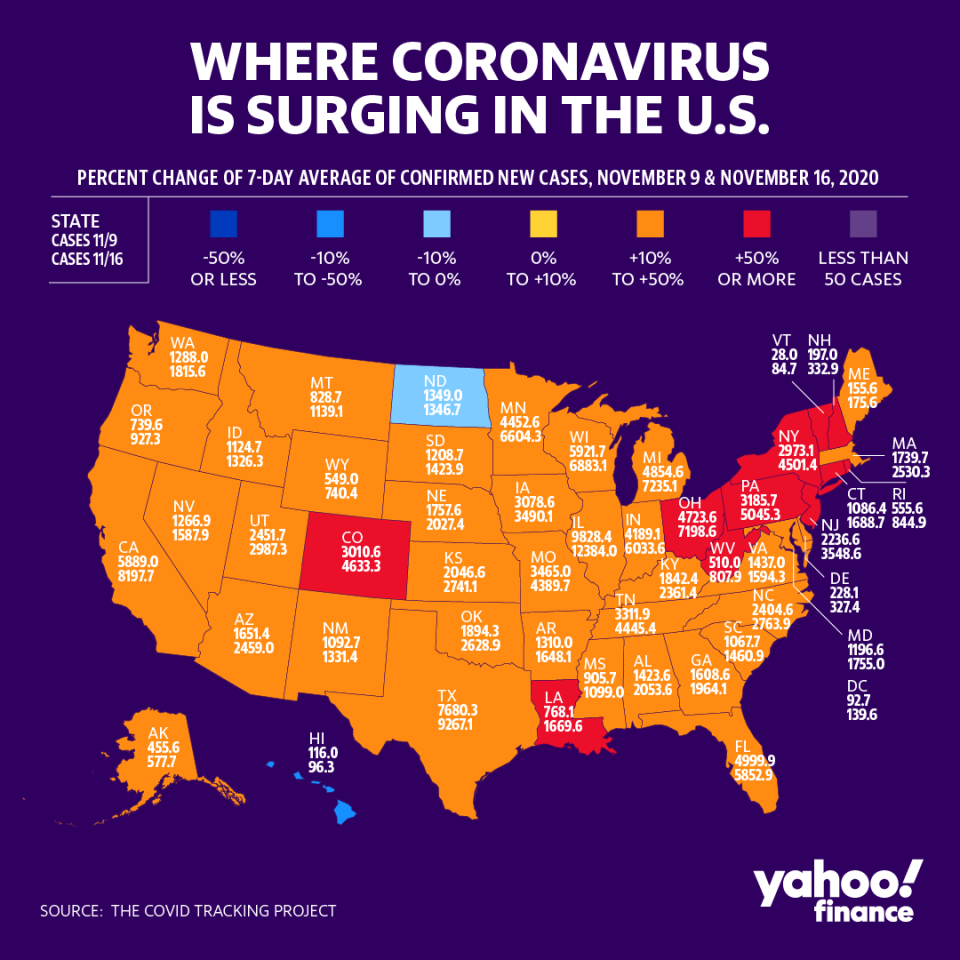'Stay focused on masking, social distancing' as we wait for coronavirus vaccines, doctor says
The news of two highly effective COVID-19 vaccines bodes well for the U.S., which surpassed 11 million coronavirus cases this week as cases surge in the Midwest and states that had reopened their economies roll back some of their actions.
Dr. Garth Walker, an emergency physician based out of Chicago, said he is seeing rates going up “tremendously” in his area and is urging people to continue following public health guidelines.
“In Illinois alone, we’ve had a 154% increase in hospitalizations throughout the past month and it’s palpable,” he said on Yahoo Finance Live (video above). “So what we need to do is stay focused on masking, social distancing, washing our hands, making sure we stick to our bread and butter, and continue those habits in conjunction with the vaccine until we’re able to get the rates at the level that can allow us to return to some form of normalcy.”

‘Be thoughtful about these holidays’
Walker’s advice isn’t new: Dr. Anthony Fauci, director of the National Institute of Allergy and Infectious Diseases (NIAID), has repeatedly stressed the importance of mask wearing, hand hygiene, social distancing, and other guidelines.
And since Pfizer (PFE) announced its successful vaccine results last week, health experts have been urging the public to not let this news lull them into a false sense of security.
This is because even if Pfizer or Moderna (MRNA), the other company with positive vaccine news, get their vaccines approved by the Food & Drug Administration (FDA), it would take months for it to be widely distributed across the country. That means that in the meantime, the public still needs to follow the same safety guidelines it’s been abiding by since March.

“So what we’ve been trying to tell everybody is to be thoughtful about these holidays,” Walker said. “Just keep it to nuclear families during Thanksgiving as well as the upcoming holidays. Think of this as a team sport in that we’re masking each other to help stabilize for our community, our friends at large, and that it’s not trying to tell people what to do, but it’s more so trying to protect our public community.”
Indoor gatherings with family and friends have been attributed as one of the main causes for the recent surge in cases, as most of the time people are not wearing masks or social distancing in these settings. Doing this not only jeopardizes one’s health but can also put a strain on hospital resources that aren’t properly prepared for overwhelming numbers of COVID patients.
“I’m very concerned,” Walker said. “One thing that we tend to forget is that this vaccine has negative externalities past just the disease itself. If we continue to swelter our hospitals, our ICUs with COVID patients, it makes it that much more difficult for us to treat things that we traditionally treat on a regular basis.”

In North Dakota, the numbers have gotten so overwhelming that officials are allowing asymptomatic COVID-positive physicians to treat COVID patients because they don’t have enough healthy employees to keep up with demand.
And generally, “if somebody comes in with a stroke not necessarily related to COVID but there’s no ICU beds, there’s no admission beds, the outcomes change dramatically,” Walker said. “And that is what we’re really fearful of. And we want to make sure that we’re able to change to this trajectory to the point where we can free up those beds and focus on patients like we normally do.”
Adriana Belmonte is a reporter and editor covering politics and health care policy for Yahoo Finance. You can follow her on Twitter @adrianambells.
READ MORE:
Coronavirus vaccine: As U.S. plans to inoculate, social media becomes key
Biden task force member: 'We are entering this period that I call COVID hell'
Read the latest financial and business news from Yahoo Finance
Follow Yahoo Finance on Twitter, Facebook, Instagram, Flipboard, LinkedIn, YouTube, and reddit.

